KAELA: Hey Katrina! Can you introduce yourself and your work to our readers?
KATRINA: Hi, hello! I’m Katrina Day, a Brooklyn based actor/writer/cat lady. Since graduating from NYU back in 2012, I’ve had the pleasure of working with many young theater and film companies in the city on everything from immersive, site-specific retellings of Greek epics to campy musical cabarets about the history of world religion. But for the last year, my primary project has been Lady Parts (www.someladyparts.com)- a blog and webseries about sexism in entertainment as experienced by early career female actors.
KATRINA: Hi, hello! I’m Katrina Day, a Brooklyn based actor/writer/cat lady. Since graduating from NYU back in 2012, I’ve had the pleasure of working with many young theater and film companies in the city on everything from immersive, site-specific retellings of Greek epics to campy musical cabarets about the history of world religion. But for the last year, my primary project has been Lady Parts (www.someladyparts.com)- a blog and webseries about sexism in entertainment as experienced by early career female actors.
KAELA: What was the impetus behind Lady Parts, the blog? What made you decide to write the webseries?
KATRINA: I launched SomeLadyParts.com as something of a Hail Mary pass, to be honest. I’d gotten to a point of such heightened frustration and disgust with all the sexist nonsense I was experiencing on the job that I couldn’t stand the idea of continuing to work in the entertainment industry unless it was possible to do so on my own terms. I started the blog to catalogue and make fun of the ridiculously offensive casting calls I came across on the daily, a move I was fairly convinced would either get me blacklisted across the industry or help me launch the career I’d always wanted. So far so good, though who knows if there’s a dartboard with my face on it in the Actors Access corporate offices.
I went on to write the Lady Parts webseries in order to address problematic aspects of the industry beyond the casting process. If the blog is collection of heinous casting notices, the webseries takes a look at what happens once you actually submit for one of those roles. I also didn’t want to remain on the sidelines, muttering snarky observations about media makers. I wanted to continue becoming a maker. Moving onto a webseries also gave me the opportunity to transform a one-woman project into a hundred-person operation. I was able to create work for other artists and learn an incredible amount about film production in the process.
KATRINA: I launched SomeLadyParts.com as something of a Hail Mary pass, to be honest. I’d gotten to a point of such heightened frustration and disgust with all the sexist nonsense I was experiencing on the job that I couldn’t stand the idea of continuing to work in the entertainment industry unless it was possible to do so on my own terms. I started the blog to catalogue and make fun of the ridiculously offensive casting calls I came across on the daily, a move I was fairly convinced would either get me blacklisted across the industry or help me launch the career I’d always wanted. So far so good, though who knows if there’s a dartboard with my face on it in the Actors Access corporate offices.
I went on to write the Lady Parts webseries in order to address problematic aspects of the industry beyond the casting process. If the blog is collection of heinous casting notices, the webseries takes a look at what happens once you actually submit for one of those roles. I also didn’t want to remain on the sidelines, muttering snarky observations about media makers. I wanted to continue becoming a maker. Moving onto a webseries also gave me the opportunity to transform a one-woman project into a hundred-person operation. I was able to create work for other artists and learn an incredible amount about film production in the process.
KAELA: Auditioning and casting calls are often unkind in general and, as your blog and webseries has documented, especially difficult for actresses. Are there times you've felt a production team has gotten it right? What did they do in those cases?
KATRINA: I have absolutely worked with companies who have gotten it right every step of the way. Two projects in particular that I’ve worked on, Odd.A.See with The Exquisite Corpse Company and The Incredible Fox Sisters with Live Source, are perfect examples of how to create a respectful, fulfilling, feminist production. In both cases, the original casting calls were incredibly inclusive, with no parameters about attractiveness, race, age, etc. These casting notices described the characters I ended up playing with evocative character traits, not just physical traits. Both shows feature central, fully-formed female characters. Not love interests, not sex objects, but subjects in their own stories.
KAELA: Acting parts available to women are not only sexist and sparse, they're often compensated far less than their male counterparts, and creative leadership jobs for women (directing, producing, etc) face the same set of circumstances. Besides creating our own work, what do you think we women professionals can do to change the entertainment industry, especially in the independent/nonprofit arts sector? What can men do to advocate for us? Are they different things?
KATRINA: I think that people of all genders need to be committed to fostering true gender equality. One of the best things a person can do is acknowledge their privilege, whatever it may be, and figure out how to use it for good. Men can use their male privilege to advocate for fair and respectful treatment of their female coworkers (hay, Bradley Cooper). They can also understand that an equal playing field is actually beneficial to them. Equal representation makes for better work and working conditions. Because who really wants to work on a set that teeming with toxic masculinity?
For their part, women can also be aware of their own privilege—be it wrapped up in race, class, ability, or what have you—and make a point of being intersectional in their feminism. They can also make a point of raising up their female colleagues instead of undercutting them. Women are so obviously pitted against each other in this industry, and it’s easy to give into that sense of competition. But we’re not going to change anything by playing the game as it’s currently written—because we’re still set up to lose. Even if we get really good at scoring points in this field, it’s still a shitty game to be stuck playing forever. We have to pick up our balls (yes, our balls) and start our own game, with our own rules. If the mainstream entertainment industry doesn’t want to let us make work, we have to make our own.
KATRINA: I have absolutely worked with companies who have gotten it right every step of the way. Two projects in particular that I’ve worked on, Odd.A.See with The Exquisite Corpse Company and The Incredible Fox Sisters with Live Source, are perfect examples of how to create a respectful, fulfilling, feminist production. In both cases, the original casting calls were incredibly inclusive, with no parameters about attractiveness, race, age, etc. These casting notices described the characters I ended up playing with evocative character traits, not just physical traits. Both shows feature central, fully-formed female characters. Not love interests, not sex objects, but subjects in their own stories.
KAELA: Acting parts available to women are not only sexist and sparse, they're often compensated far less than their male counterparts, and creative leadership jobs for women (directing, producing, etc) face the same set of circumstances. Besides creating our own work, what do you think we women professionals can do to change the entertainment industry, especially in the independent/nonprofit arts sector? What can men do to advocate for us? Are they different things?
KATRINA: I think that people of all genders need to be committed to fostering true gender equality. One of the best things a person can do is acknowledge their privilege, whatever it may be, and figure out how to use it for good. Men can use their male privilege to advocate for fair and respectful treatment of their female coworkers (hay, Bradley Cooper). They can also understand that an equal playing field is actually beneficial to them. Equal representation makes for better work and working conditions. Because who really wants to work on a set that teeming with toxic masculinity?
For their part, women can also be aware of their own privilege—be it wrapped up in race, class, ability, or what have you—and make a point of being intersectional in their feminism. They can also make a point of raising up their female colleagues instead of undercutting them. Women are so obviously pitted against each other in this industry, and it’s easy to give into that sense of competition. But we’re not going to change anything by playing the game as it’s currently written—because we’re still set up to lose. Even if we get really good at scoring points in this field, it’s still a shitty game to be stuck playing forever. We have to pick up our balls (yes, our balls) and start our own game, with our own rules. If the mainstream entertainment industry doesn’t want to let us make work, we have to make our own.
KAELA: Lady Parts got funded through an awesome (and organized!) crowdfunding campaign: I think funding is such an important and sometimes desperate part of creating work that artists don't always discuss. What role do you think funding should ideally have in the independent arts world? What role did funding have in the creation of Lady Parts? If you found a gap between the ideal and the actual, how would you fix it?
KATRINA: A lot of people are skittish about crowdfunding, because it does get a bad rap for being a “desperate” move. I went through the same round of insecurities as I was gearing up to launch our Kickstarter. But ultimately, I had to remind myself that I was asking people to help pay for something they’d expressed an interest in seeing. Having already established a following for the Lady Parts blog really helped with the crowdfunding efforts—not just because there were more people to pitch in, but because everyone who contributed already had a rich understanding of what our project was all about.
I actually think that crowdfunding is a pretty decent way to get started in the indie arts world. It frees you up to create exactly what you want, rather than answer to people who need to make a profit off your work. I’m glad we were able to create the first season on our own terms, with the help of people who cared deeply about the project. Hopefully, that head start will help us get funding for season two from a source other than our viewers. We were able to set a precedent with season one, to make something entirely on our terms. That’s not a bad spot to be in, all things considered.
KAELA: What series, movies, or books are you recommending and why?
KATRINA: I am constantly consuming media, so this list of recommendations might get a little unruly, but here goes.
Books: For the last few months, I’ve tearing through everything that Zadie Smith, Margaret Atwood, and Chimamanda Ngozi Adichie have ever written. They are masters of world creation and such poignant, specific, sparingly-hilarious authors. The highlights of this reading spree have been White Teeth (Smith), The Blind Assassin (Atwood), and Americana (Adichie).
Movies: Some favorites I’ve happened upon this part year are Ida, Obvious Child, and Welcome to Me. Each is of a completely different style, but all feature incredible female characters dealing with Great Big Questions.
TV: Oh god, so many. Short list: Halt and Catch Fire, Broad City, The Affair, Portlandia, and thanks to Netflix, a couple throwbacks—The X-Files, Twin Peaks, and Battlestar Galactica.
KAELA: We at 2 Girls | 1 Asian love food and drink as cultural and social centerpieces. What's the best meal you ever had? Where are your favorite places to go in New York?
KATRINA: The best meal I’ve ever had was at Juuri, in Helsinki. They do Finnish small plates, their own take on tapas, and it was the bomb. My current favorite places in NYC are all clustered in Brooklyn, because I’m loathe to leave Ditmas Park if I don’t have to, but include The Castello Plan, The Farm on Adderly, and Speedy Romeo. There’s also an amazing Tibetan cafe right next to the Cortelyou Q stop that cannot go wrong, in my book.
KAELA: In the same vein, imagine you're throwing a dinner party for three feminist icons. Who are they, what will you discuss, and what will you serve?
KATRINA: OK. Guest list: Gloria Steinem, Malala Yousafzai, Virginia Woolf. Topics of conversation: how badass they are, obviously, but also how to influence change by high brow, low brow, and post-brow means. As for the menu—I would fly them all out to meet me in San Sebastian, where we’d get cozy at a hole-in-the-wall bar, and feast on as many pintxos and as much Txakoli as our hearts desired. Oh, and I’d be weeping with joy the whole time, just for the record.
KAELA: What advice would you give artists looking to create a webseries, blog, or online content in general?
KATRINA: Find the intersection of what you’re passionate about saying and what hasn’t been said yet. Plant your flag there and start waving it with all your might. Accept help from people who share your vision, and ask for help from people who know more than you. But also know when to say “no”, and accept the fact that you’re not going to be able to make everyone happy all the time. Indie filmmaking is scrappy work, and it’s not always going to be comfortable. And as for fear of waking the online trolls, which is a real concern with feminist content, rest easy in knowing that they’re just proving your point with every grunt and and wail of “not all men” or “go back to the kitchen”.
KAELA: You're a jack of all trades: we at 2g1a have seen you act, sing, write, direct and produce. What projects are you working on now, and how can we view your other work?
KATRINA: My current project is the world premiere of Jaclyn Backhaus and Live-Source’s The Incredible Fox Sisters at The New Ohio Theatre. We open on the October 30th and run for ten performances. I play Maggie Fox, one of the real-life founders of American Spiritualism. The play is a dark comedy that’s very near and dear to my heart. So come see that, for starters!
And as soon as I hang up my fox tail (Fox Tale?), I’m diving right back into writing the next batch of Lady Parts content. I don’t have a ton of specifics about Season Two yet, but it’s coming! Our first season has already been accepted into some web fests, so just keep an eye on the blog for information about our latest doings at Lady Parts. There’s a whole lot more we have to say.
KAELA: Thanks, Katrina, for all your wise insights (and restaurant recommendations!) To find out more, follow Katrina's blog at someladyparts.com, follow her on twitter (@someladyparts) and like this amazing project on facebook!
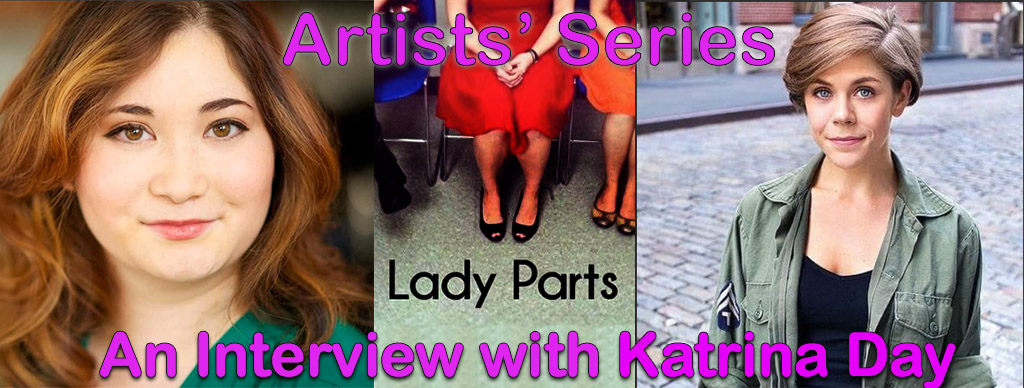
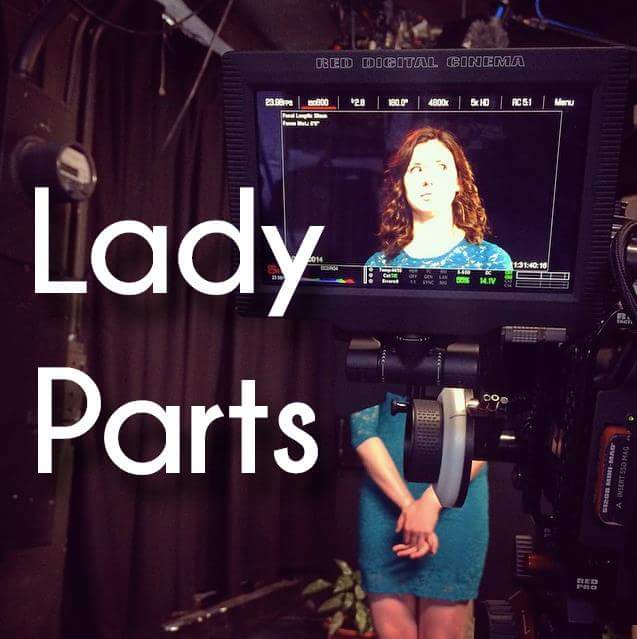
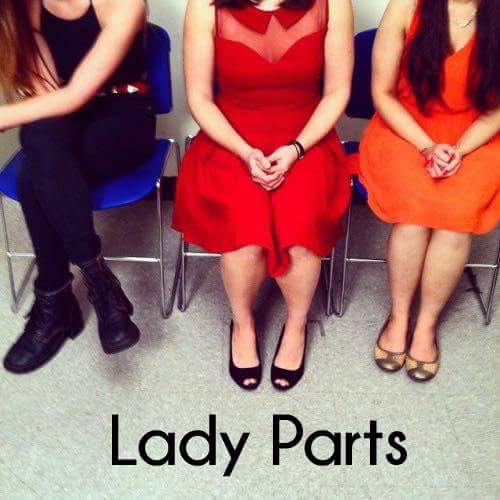
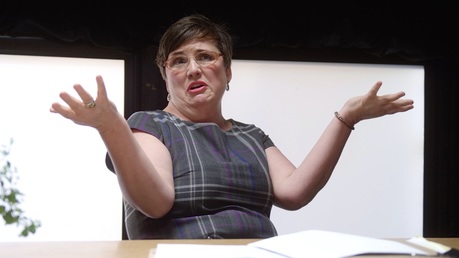
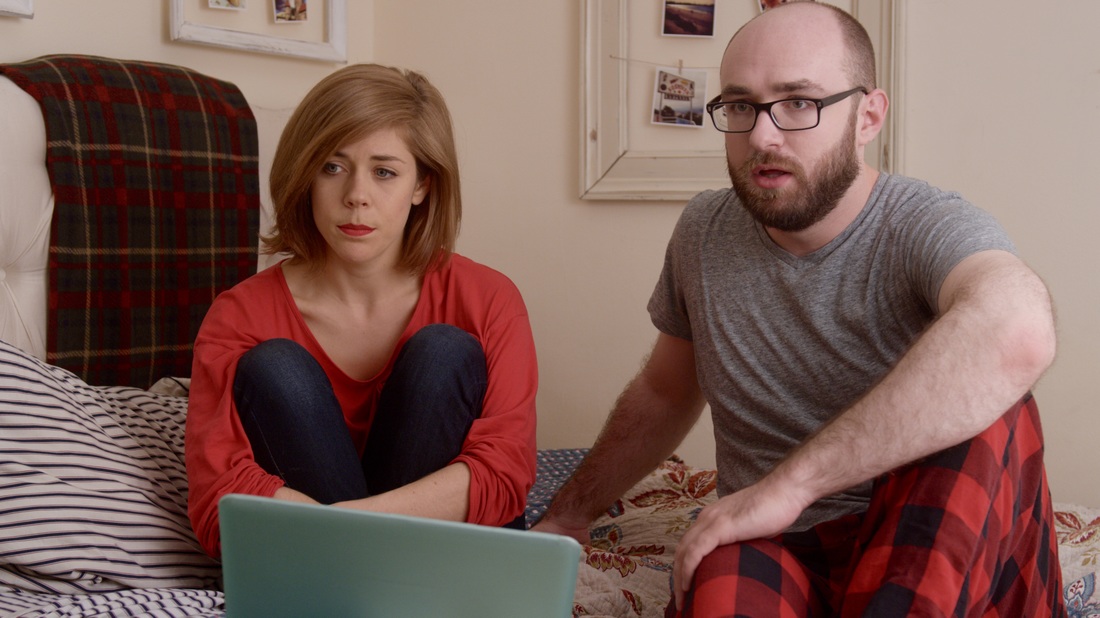
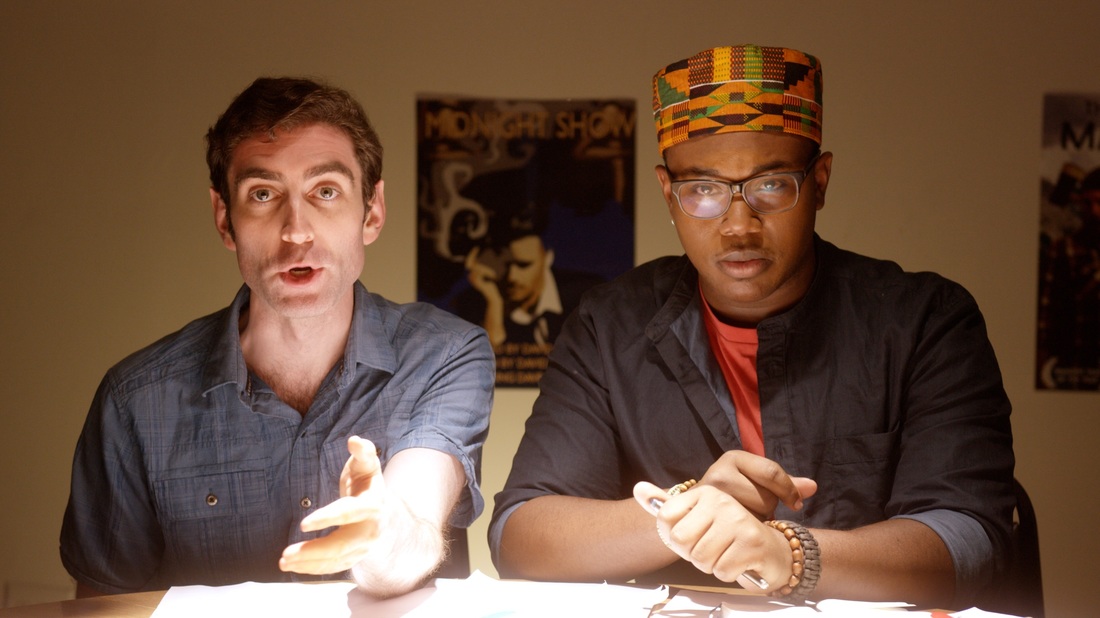
 RSS Feed
RSS Feed
